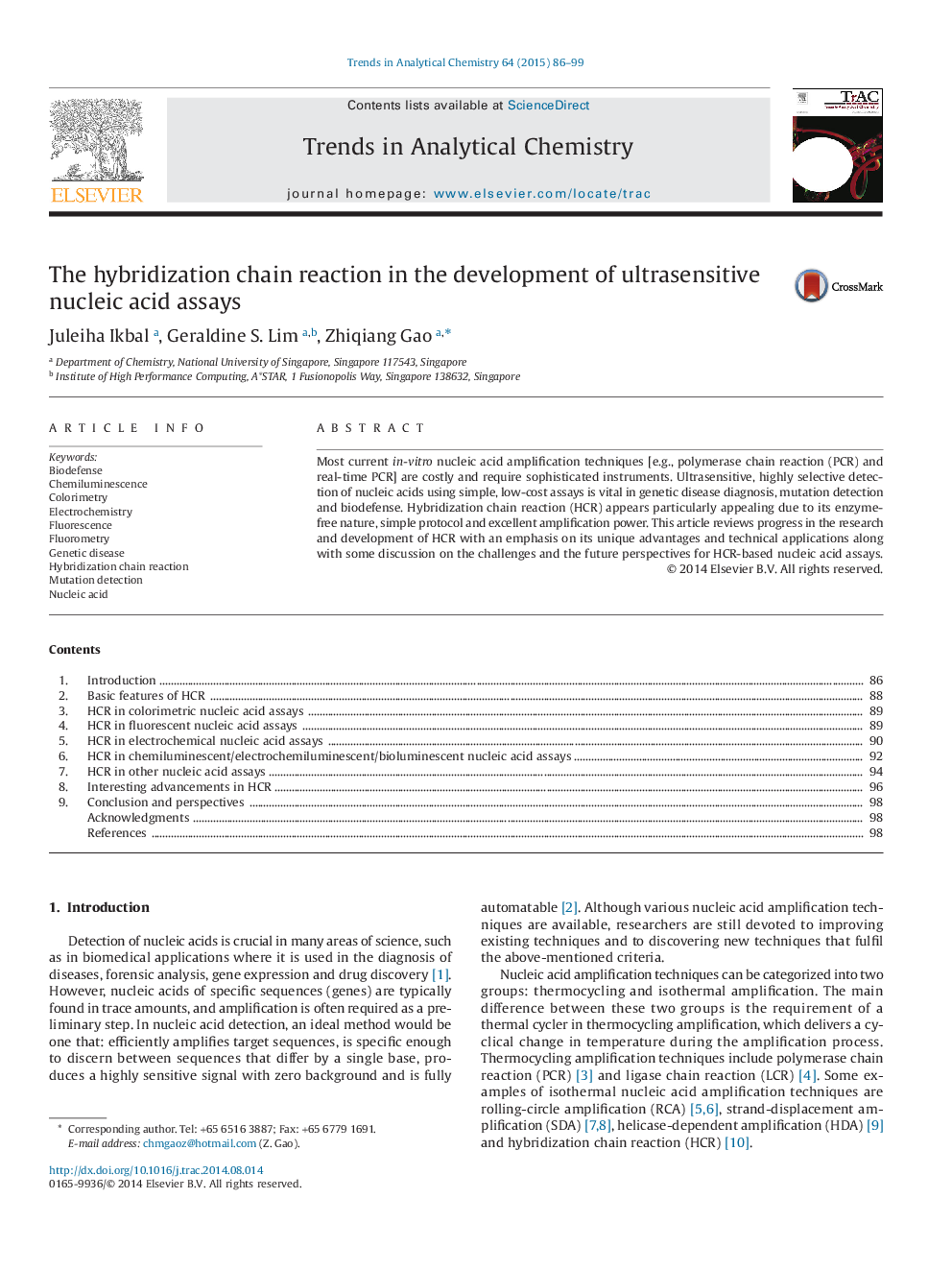| Article ID | Journal | Published Year | Pages | File Type |
|---|---|---|---|---|
| 1247770 | TrAC Trends in Analytical Chemistry | 2015 | 14 Pages |
•We highlight the basic features of the hybridization chain reaction (HCR).•We review application of HCR in ultrasensitive nucleic acid assays.•We elaborate representative examples of HCR-based nucleic acid assays.•We compare nucleic acid assays based on HCR and discuss their future.•We discuss the latest developments of HCR and its applications.
Most current in-vitro nucleic acid amplification techniques [e.g., polymerase chain reaction (PCR) and real-time PCR] are costly and require sophisticated instruments. Ultrasensitive, highly selective detection of nucleic acids using simple, low-cost assays is vital in genetic disease diagnosis, mutation detection and biodefense. Hybridization chain reaction (HCR) appears particularly appealing due to its enzyme-free nature, simple protocol and excellent amplification power. This article reviews progress in the research and development of HCR with an emphasis on its unique advantages and technical applications along with some discussion on the challenges and the future perspectives for HCR-based nucleic acid assays.
